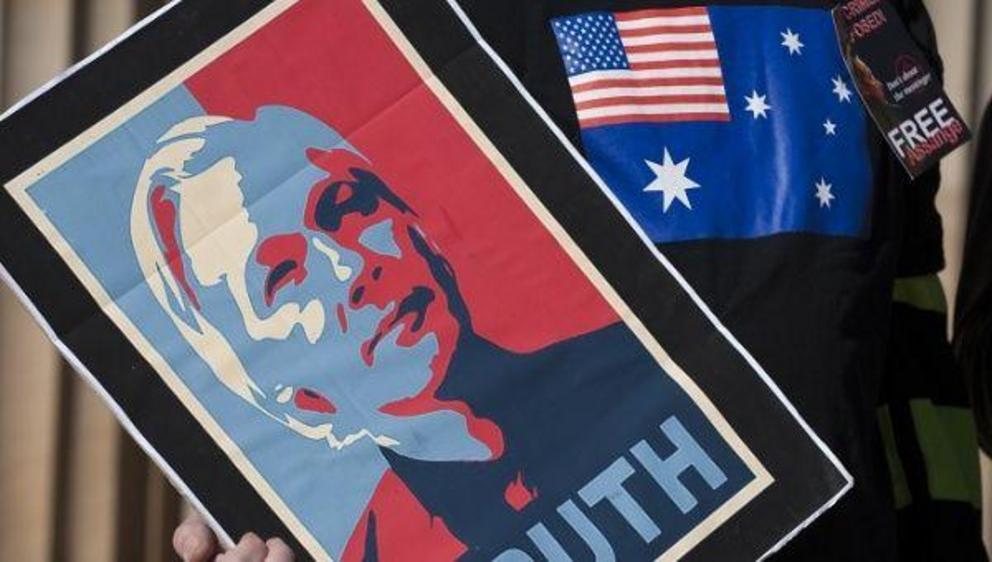Ecuador's ex-foreign minister: Assange isolation 'unjustified'
Many fear Ecuador's decision to ban internet access and visitors is one step towards ending Assange's asylum.
Ecuador’s former foreign minister Guillaume Long spoke out against Ecuadorean government’s treatment of Julian Assange, who was granted asylum by former President Rafael Correa in 2012 and has been living in Ecuador’s embassy in London since.
On March 28, just days after hosting a delegation of the United States Southern Command (Southcom), Ecuador's President Lenin Moreno decided to cut his guest’s communications with the outside world, denying him access to the internet and banning visitors who are not part of his legal team.
An online petition has been launched calling on the Ecuadorean government to end Assange’s isolation. It has reached over 73,000 signatures in support.
In a recent interview with The Guardian, Long said the measures against Assange are unjustified and disproportionate.
Although he acknowledged that during Correa’s presidency, in 2016, Assange was temporarily denied access to the internet, Long argues that the new ban is not comparable.
The 2016 ban was not only short, but it was a response to a WikiLeaks publication of Hillary Clinton’s emails during the last stage of the U.S. presidential elections. “We are seeing now access in general to Julian is being restricted. I understand it is open-ended. There is no set date for a reconnection,” Long said.
In another exculsive report by the British newspaper, Assange was accused of “violating” the embassy’s communications system and reading “confidential diplomatic traffic”. WikiLeaks has emphatically denied the accusation, saying: “That’s an anonymous libel aligned with the current UK-US government onslaught against Mr Assange’s asylum—while he can’t respond.”
Supporters of the cyberactivist and WikiLeaks founder fear Ecuador’s decision aim to force Assange out of the embassy or that it is a first step before Moreno gives in to pressure by the U.S. and United Kingdom.
During the interview, Long said the U.K. was the”most aggressive” in pressuring Ecuador to revoke Assange’s asylum.
“There were some sort of veiled and not so veiled threats it would affect relations not just with the U.K., but the European Union... The UK wanted us to chuck him out of the embassy. That is pretty much what was required of us,” Long explained.
Fears are well-founded. Earlier this year, President Moreno described Assange as an “inherited problem,” and a “kacker.” Furthermore, unlike his predecessor, Moreno has taken several steps to improve the country's diplomatic relations with the U.S.
In late April, the Ecuadorean government signed a security cooperation agreement with the U.S., that includes the arrival of a military team in charge of cooperation in security that was expelled from the country in 2014, after Correa accused them of infiltrating Ecuadorean institutions to conspire against his government.
If Assange is given to British authorities he could face prison for skipping bail and face extradition to the U.S., where he would be tried for espionage and could be sentenced to death for exposing U.S. war crimes in Iraq and Afghanistan.
In a press conference last week, U.S. Attorney General Jeff Sessions said arresting Assange is a priority and that they are “intensifying their efforts.”

